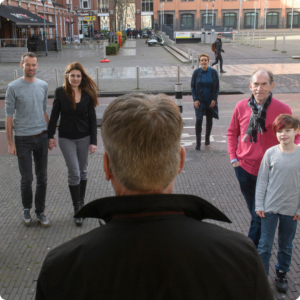Recovery and reintegration after a crime is a joint task of individual and society
How can we help people who have committed a crime and are confined in a prison or other institution to find a full place in society again? How can we support people who have been victims of a crime in their recovery? And how can we achieve recovery in practice within the social network (family, children, friends) around perpetrator and victim? These are the broad research questions that occupy the Restorative Justice & Desistance from Crime research group. The research group proceeds from the assumption that a good connection between life within and outside the walls of the institution (transmural working) is a condition for creating learning opportunities and successful reintegration. Practice-based research provides concrete tools to build that bridge and help our professionals navigate it.
There are various reasons why people are not able to live in their own homes for a certain period of their lives; for example, homeless people in shelters, refugees waiting for a residence permit in asylum seeker centres, children who have been taken out of their homes by social services, people with a psychiatric condition who have been admitted to an institution or perpetrators of a crime who are serving a prison sentence. Almost all of these forms of intramural stays are temporary: ultimately our aim is (re)integration in society. But how do we go about that?Professionals play a key role in increasing the chances of successful reintegration; for this reason, the research group primarily focuses on boosting their skills.


